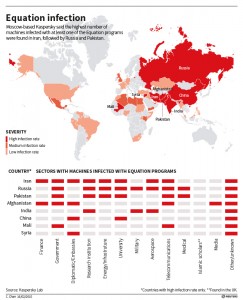Striking a Balance—Whistleblowing, Leaks, and Security Secrets by Cody Poplin.
From the post:
Last weekend, the New York Times published an article outlining the strength of congressional support for the CIA targeted killing program. In the story, the Times also purported to reveal the identities of three covert CIA operatives who now hold senior leadership roles within the Agency.
As you might expect, the decision generated a great deal of controversy, which Lawfare covered here and here. Later in the week, Jack Goldsmith interviewed Executive Editor of the New York Times Dean Baquet to discuss the decision. That conversation also prompted responses from Ben, Mark Mazzetti (one of the authors of the piece), and an anonymous intelligence community reader.
Following Times’ story, the Johns Hopkins University Center for Advanced Governmental Studies, along with the James Madison Project and our friends at Just Security, hosted an a timely conference on Secrecy, Openness and National Security: Lessons and Issues for the Next Administration. In a panel entitled Whistleblowing and America’s Secrets: Ensuring a Viable Balance, Bob Litt, General Counsel for the Office of the Director of National Security, blasted the Times, saying that the paper had “disgraced itself.”
However, the panel—which with permission from the Center for Advanced Governmental Studies, we now present in full—covered much more than the latest leak published in the Times. In a conversation moderated by Mark Zaid, the Executive Director of the James Madison Project, Litt, along with Ken Dilanian, Dr. Gabriel Schoenfeld, and Steve Vladeck, tackled a vast array of important legal and policy questions surrounding classified leak prosecutions, the responsibilities of the press, whistleblower protections, and the future of the Espionage Act.
It’s a jam-packed discussion full of candid exchanges—some testy, most cordial—that greatly raises the dialogue on the recent history of leaks, prosecutions, and future lessons for the next Administration.
Spirited debate but on the basis of known fictions.
For example, Bob Litt, General Counsel for the Office of the Director of National Security, poses a hypothetical question that compares an alleged suppression of information about the Bay of Pigs invasion to whether a news organization would be justified in leaking the details of plans to assassinate Osama bin Laden.
The premise of the hypothetical is flawed. It is based on an alleged statement by President Kennedy wishing the New York Times had published the details in their possession. One assumes so that public reaction would have prevented the ensuing disaster.
The story of President Kennedy suppressing a story in the New York Times about the Bay of Pigs is a myth.
Busting the NYTimes suppression myth, 50 years on reports:
…
Indeed, the Times’ purported spiking has been called the “symbolic journalistic event of the 1960s.”
Only the Times didn’t censor itself.
It didn’t kill, spike, or otherwise emasculate the news report published 50 years ago tomorrow that lies at the heart of this media myth.
That article was written by a veteran Times correspondent named Tad Szulc, who reported that 5,000 to 6,000 Cuban exiles had received military training for a mission to topple Fidel Castro’s regime; the actual number of invaders was about 1,400.
…
The story, “Anti-Castro Units Trained At Florida Bases,” ran on April 7, 1961, above the fold on the front page of the New York Times.
The invasion of the Bay of Pigs happened ten days later, April 17, 1961.
Hardly sounds like suppression of the story does it?
That is just one fiction that formed the basis for part of the discussion in this podcast.
Another fiction is that leaked national security information, take some of Edward Snowden‘s materials for example, were damaging to national security. Except that those who claim to know can’t say what information or how it was damaging.
Without answers to what information and how it was damaging to national security, their claims of “damage to national security” should go straight into the myth bin. The unbroken record of leaks shows illegal activity, incompetence, waste and avoidance of responsibility. None of those are in the national interest.
If the media does want to act in the “public interest,” then it should stop repeating unsubstantiated claims of damage to the “national interest,” by the security community. Repeated falsehoods does not make them useful for debates of public policy. When advanced such claims should be challenged and then excluded from further discussion without sufficient details for the public to reach their own conclusion about the claim.
Another myth in this discussion is the assumption that the media has a in loco parentis role vis-a-vis the public. That media representatives should act on the public’s behalf in determining what is or is not in the “public interest.” Complete surprise to me and I have read the Constitution more than once or twice.
I don’t remember seeing the media called out in the Constitution as guardians for a public too stupid to decide matters of public policy for itself.
That is the central flaw with national security laws and the rights of leakers and leakees. The government of the United States, for those unfamiliar with the Constitution, is answerable under the Constitution to the citizens of the United States. Not any branch of government or its agencies but to the citizens.
There are no exceptions to United States government being accountable to its citizens. Not one. To hold government accountable, its citizens need to know what government has been doing, to whom and why. The government has labored long and hard, especially its security services, to avoid accountability to its citizens. Starting shortly after its inception.
There should be no penalties for leakers or leakees. Leaks will cause hardships, such as careers ending due to dishonestly, incompetence, waste and covering for others engaged in the same. If you don’t like that, move to a country where the government isn’t answerable to its citizens. May I suggest Qatar?



